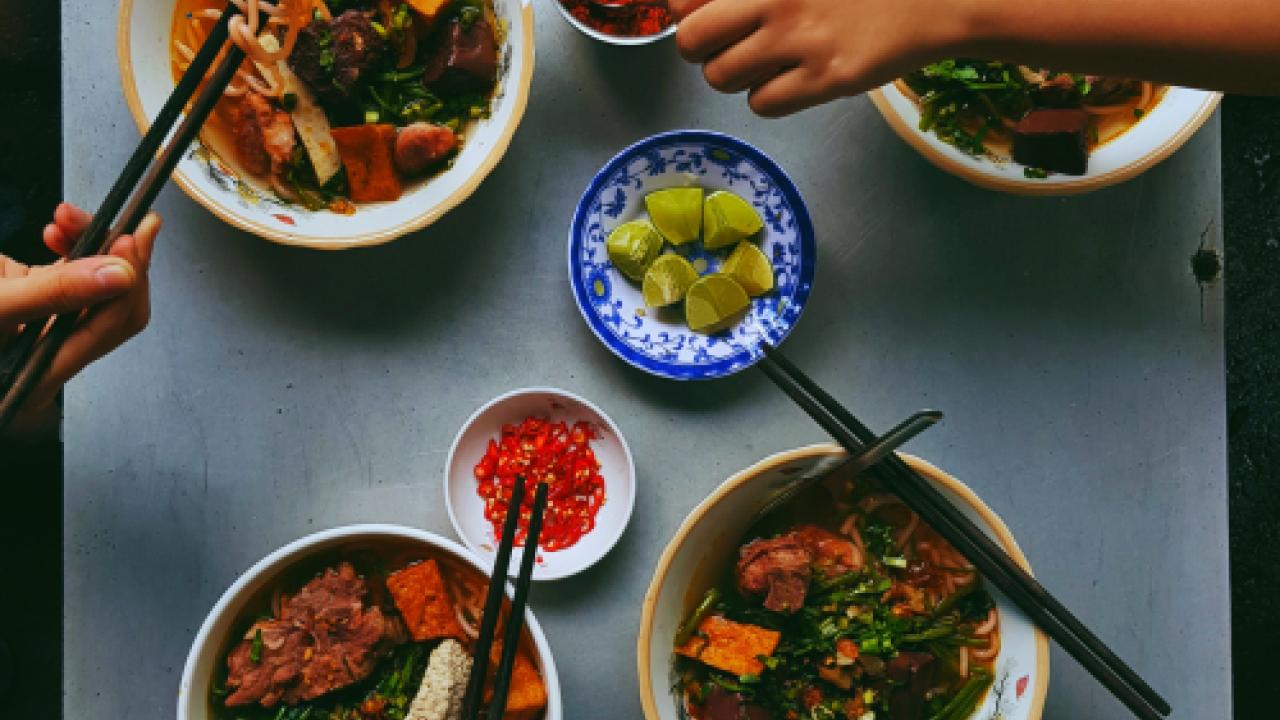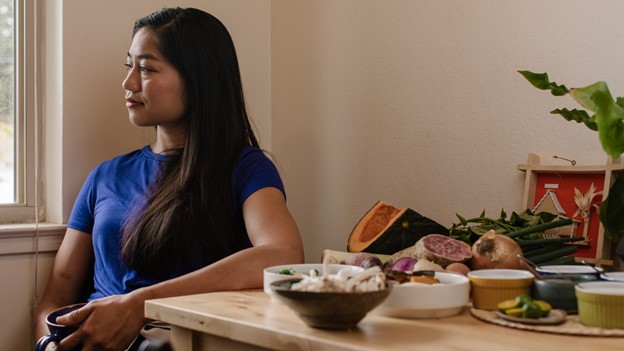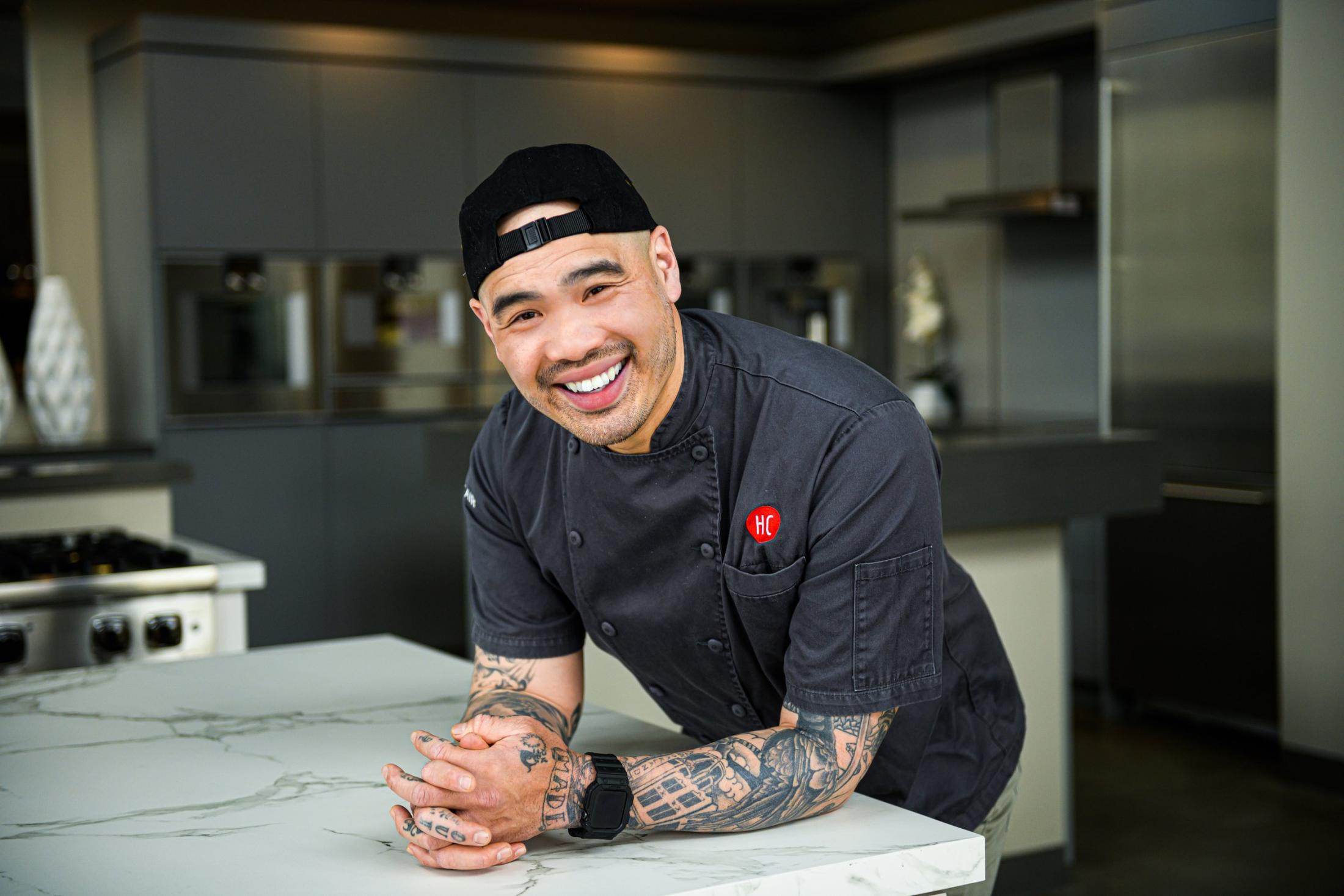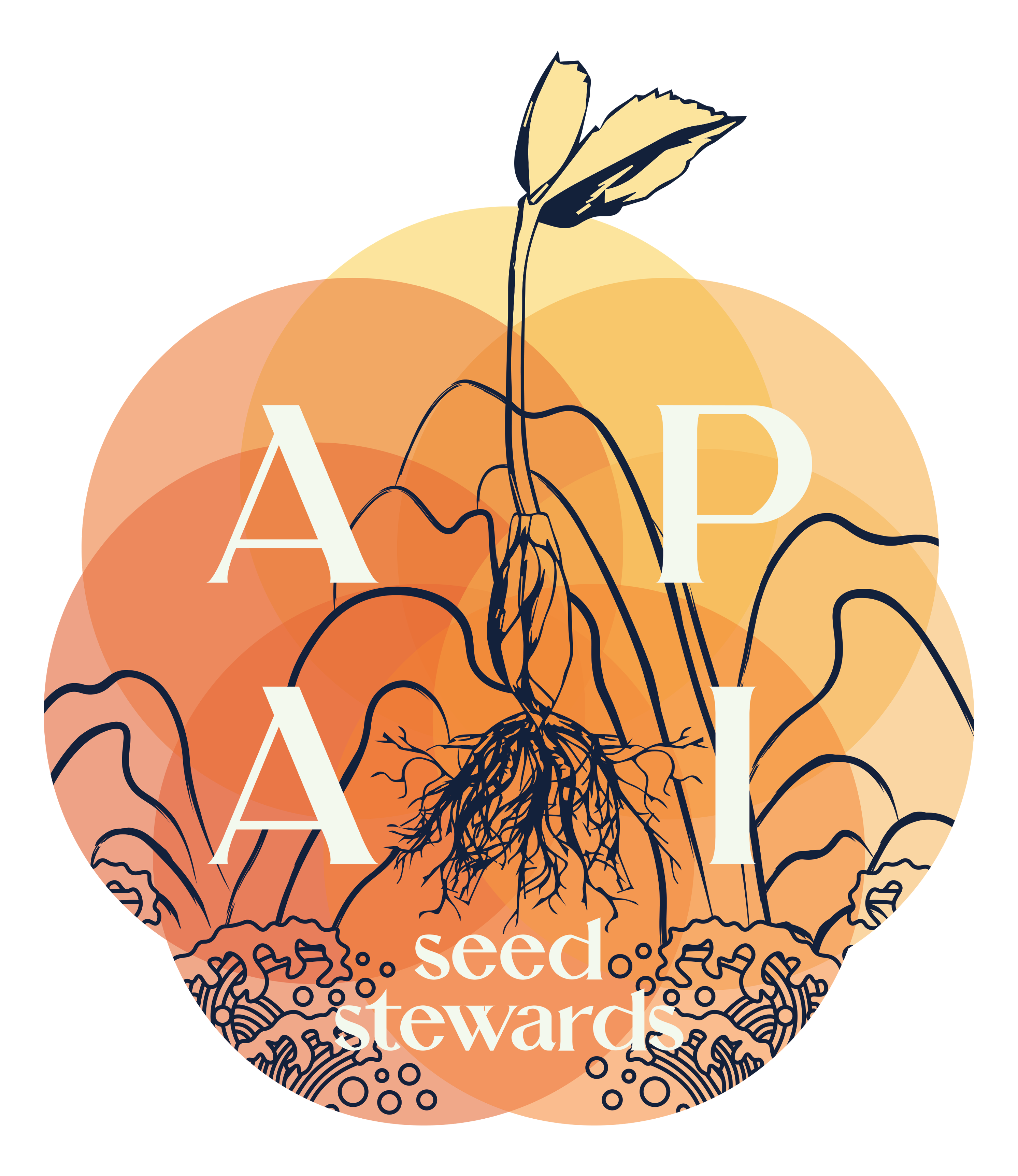
Navigating Cultural Identity Through a Culinary Lense
As we continued to navigate the COVID-19 Omicron variant in early February, the API Farmers Seminar was held in a hybrid format―some folks were in-person while others, including speakers Chef Tu David Phu and Aileen Suzara, were on Zoom. Kristyn facilitated a discussion between the two surrounding cultural identities, food, and the work that they do. As a mixed heritage individual, food and ingredients were my connection to my two cultures. Hearing their stories about the significance of cultural foods and ingredients in their identity development and connection to culture was so validating. As Aileen shared, discussions about food are deeply intimate and personal. The space definitely felt this way, with their storytelling prompting me to think about my own experiences with food and family.
Aileen shares stories of her family―as the daughter of migrants from the Philippines, one of the most critical questions that Aileen was asked growing up was “Who was the most recent person in your family to grow food?” Meeting her grandfather, the first person that she knew who grew food as a farmer, was a huge turning point for her―it seemed as though labor organizing or agriculture was something of the past, but realizing that it was so close to her led to a shift. It is clear that for Aileen, food and crops were a way of navigating her identity. Filipino Americans are deeply embedded in US agricultural history, and Aileen brings those lessons into various aspects of community work.

Aileen hopes to shift the stereotyping around what Filipino food is and the idea that it is “unhealthy”.
According to Aileen, “...when you tell people that your food traditions are unhealthy, you are creating a sense of violence around reconnecting to the things that you identify.”
In addition to the violence, the stereotype is inaccurate―there is a vast array of heritage crops and ways to prepare them. “You could have your culture and be healthy, you don’t have to let go of those things, and actually live,” Aileen says. Through collaborations with Kristyn, Aileen embodies this belief and aims to find ways to reconnect younger generations back to food ways. Together, they created SamaSama Cooperative―a summer camp for youth to visit Kristyn’s farm in Winters and connect to the land and vast diaspora. The question of what we pass on, what we protect, and who our work is for became very important for Aileen after becoming a parent. As future ancestors, we have responsibilities of ensuring that our youth will have crops they can eat that they can also pass onto their loved ones.
Chef Tu is a part of the Vietnamese diaspora, with his parents being refugees from Vietnam. As a contestant on season fifteen of Top Chef, he is also familiar with how stories of food and culture are not represented in genuine and accurate ways. One of Chef Tu’s goals is to highlight stories of farmers and seed savers of the Southeast Asian diaspora. He shares a video with us that highlights the story of a Hmong refugee from Laos who owns a farm in northern Sacramento―as she fled from her home, she packed seeds in the seam of her coat. Chef Tu found so much meaning in refugees prioritizing seeds while fleeing their home countries. He believes that “...seeds are her way of illustrating identity.” While acknowledging the complexity of identity, Chef Tu believes that it is easy to explain identity through ingredients.

“Ingredients and recipes together are our ways to form a sort of taste. That taste illustrates sort of time in place and it illustrates our human experience.”
Using bittermelon as an example, Chef Tu argues that it is our right to grow a variety of ingredients that reflect our cultural identities because we deserve to be seen and have our needs honored.
Chef Tu and Aileen both discuss the complexity of identity and the shortcomings of the idea of authenticity. I resonated deeply with Aileen’s point of culture and identity being fluid―people will not fit into neat boxes or forever be one thing. David adds that there is no one person that fully represents the experience of Asian Americans. People can look like plants―we could trace the lineage of a plant and find that it has many branches and locations, and the same can be said about our identities. Ingredients and identities have no choice but to adapt. As long as we are staying true to the spirit of the roots, then we can forget about the ideas of authenticity.
